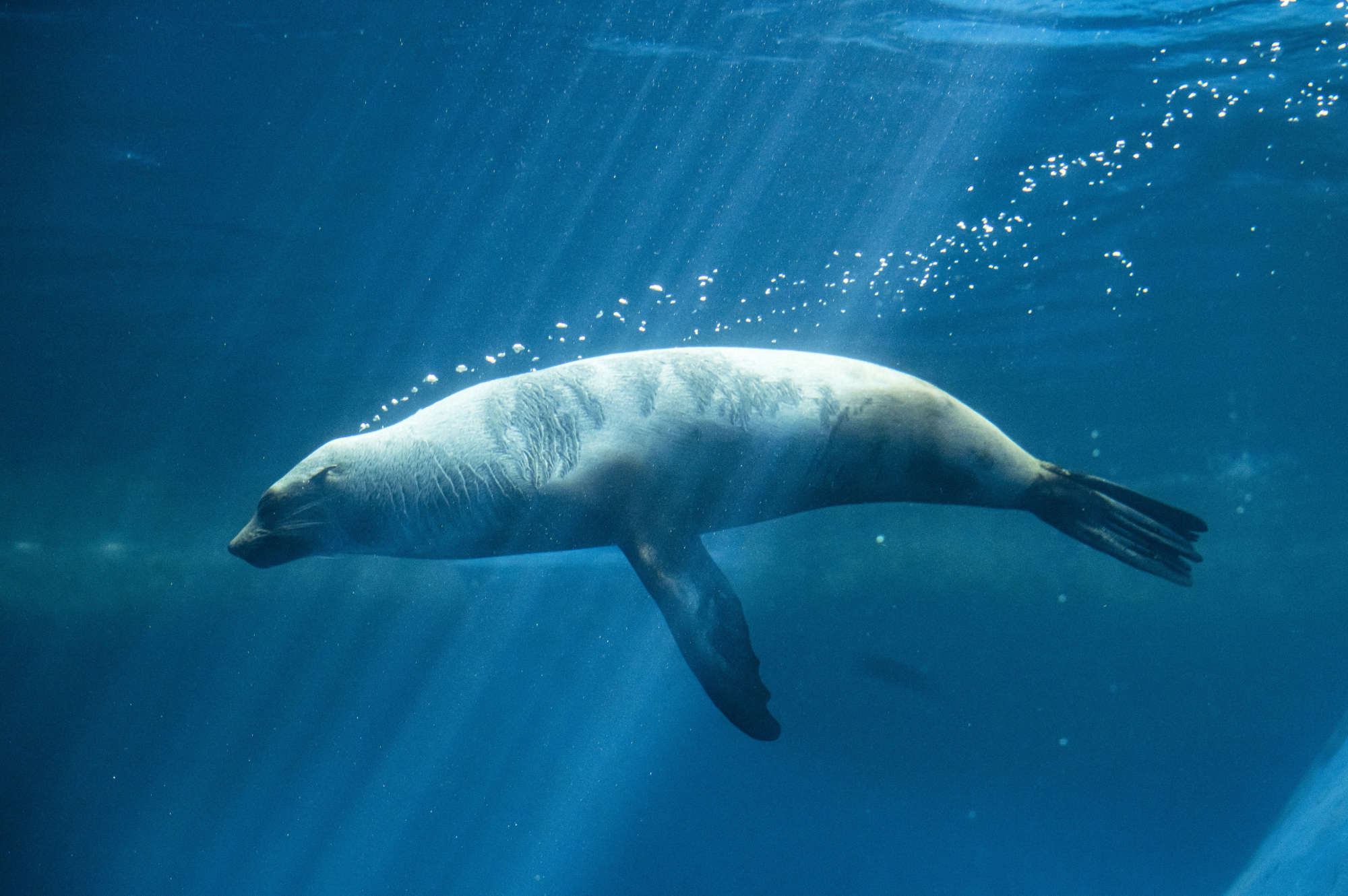Victorian waters are home to several important Australian fur seal breeding colonies. One of the largest of these seal colonies is Seal Rocks, just outside the western entrance to Western Port near Phillip Island.
The Australian fur seal is also the predominant seal species seen in Port Phillip Bay. The seals can sometimes be found resting on beaches around the bay. More commonly, they can be seen towards the heads around the Mornington and Bellarine Peninsulas. Port Phillip Bay is occasionally visited by other seal species, including sub-Antarctic fur seals, Australian sea lions, southern elephant seals and leopard seals.
The State of the Marine and Coastal Environment 2021 Report looks at the impact of litter in Victoria’s marine environments. Research by Dr Rebecca McIntosh and colleagues tells us that litter, including general rubbish and fishing waste (such as discarded fishing line) are the chief threats to these seals. When curious seals swim and encounter debris, they may ingest it, or become entangled in it.
In 2010, Zoos Victoria launched the Seal the Loop program, which aims to reduce the amount of fishing litter entering our state’s waterways, where it can harm wildlife. The program installs brightly coloured Seal the Loop bins at popular fishing locations throughout Victoria. Seal the Loop bins make it easy for anglers to responsibly dispose of their unwanted fishing gear, and also raise awareness about the threat that fishing litter poses to aquatic wildlife.

- Darcie Carruthers, Zoos Victoria’s Acting Senior Manager of Conservation Campaigns.
Local community groups install and monitor Seal the Loop bins. These 'bin custodians' include councils, environmental groups and volunteer groups. Over 70 bin custodians help to maintain the bins and provide data about their contents. Since the bins were first installed in 2010, an estimated 70km of fishing line and over 60,000 hooks, sinkers and other tackle has been collected in bins across the state.
Zoos Victoria encourages all coastal users and recreational fishers to dispose of fishing line and other unwanted fishing gear responsibly. To request a Seal the Loop bin in your area, or to become a bin custodian, get in touch with Zoos Victoria at takeaction@zoo.org.au.
You can learn more about litter, pollution and our much-loved marine mammals in the State of the Marine and Coastal Environment 2021 Report.

